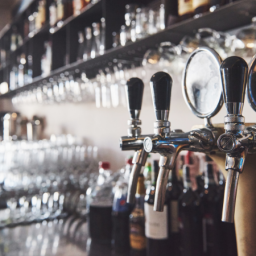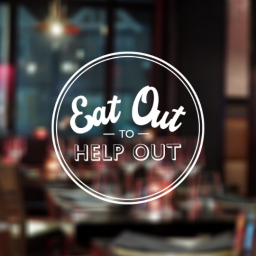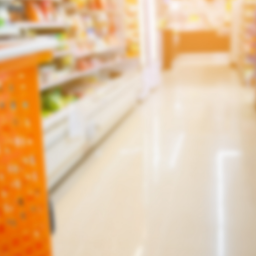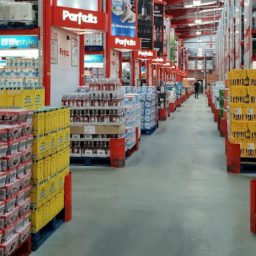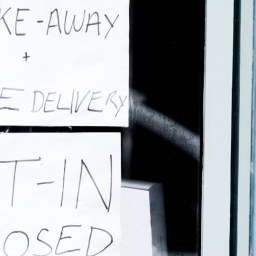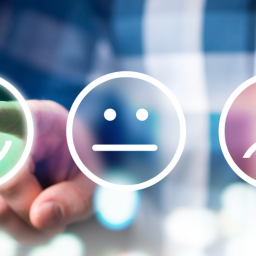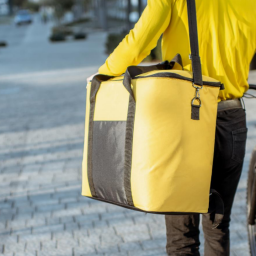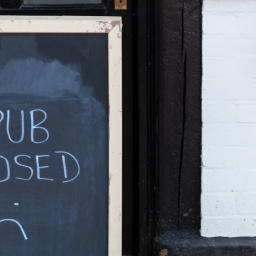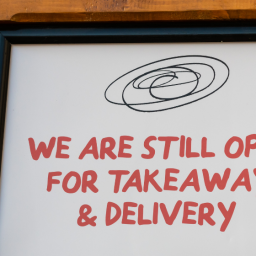
I’m sure we’re all guilty of fantasising about the time before Coronavirus, looking back on when we could walk into a pub mask-less, without a QR code in sight nor a 10pm bedtime looming. However, the years leading up to the pandemic were filled with challenging events and discussions of their own. A collection of environmental disasters swarmed our news feeds, from worldwide wildfires to the hottest ever summer in Europe.
Activists took to the streets, led by the young, pleading leaders and decision-makers to take action. They lay their cards bare: do the right thing or suffer. This ‘eco shaming’ applied to businesses too as customers called on corporations to act responsibly or risk losing their custom.
In fact, in February 2020, 56% of consumers agreed with the statement ‘knowing that a restaurant / pub / store supports sustainability is very important to me’ and businesses, small and large, were slowly realising this. Understanding that environmental and ethical practices were key to achieving, not only environmental, but economic and social sustainability too. For example, Thornton’s Budgens in Belsize Park introduced plastic-free zones, and many suppliers cut packaging, such as CCEP ending their use of plastic shrink-wrap across all canned multipacks in Great Britain.
It is younger consumers, those aged 18-34 who are mostly likely to ‘strongly agree’ with the previous statement, with 18-24 year olds 20% more likely to agree and 25-34 year olds 30% more likely.
Our Channel Pulse data shows that these age groups were most likely to have increased their use of their local convenience store during the pandemic, so it may then be inferred that sustainability initiatives are more important than ever in the channel, particularly to retain these customers. However, the topic is complex and these are not normal times.
In order to unpick the topic of sustainability in a post-pandemic world, we will briefly look at how consumer opinions have changed for three key areas of sustainability:
The War on Plastic
In 2018, ‘single-use plastic’ was the word of the year and in February 2020 36% of consumers claimed to have discussed topics such as plastic with others. However, since the pandemic hygiene has leapfrogged agendas, somewhat pausing progress on plastic.
Legislation was halted and convenience retailers anecdotally spoke of declines in loose produce sales and decreased use of refill dispensers. And of course, PPE use, such as plastic gloves and disposable masks, has increased massively and full PPE displays have popped up in stores.
in February 2020 36% of consumers claimed to have discussed topics such as plastic with others
However, going forward, whilst a looming second peak means anxiety and a focus for ‘clean over green’ remains, the problem of plastic is not going away – and if anything, it’s getting worse.
Inevitably legislation is being un-paused, for example plans to double the plastic bag charge are going ahead next spring, with small retailers no longer being exempt. But also, younger shoppers, who as we’ve seen are now more prevalent in convenience stores and who are generally less directly affected by the virus, will start to refocus their attention on plastic.
Innovative ideas by retailers will stand out to customers, such as Heart of England Co-op introducing refillable hand sanitiser stations. And brands, such as Evian who have recognised plastic progress can’t just stop and have just announced their 750ml SKU bottle will be made from 100% recycled plastic, will win in the long run.
The Food Waste Fight
Pre pandemic, food waste was on consumers’ minds and certain companies were leading the way. For example, The Company Shop, who are the UK’s largest redistributor of food and Too Good To Go, who are a food waste app who are partnered with the likes of AF Blakemore. However, household food waste remained high and was in fact growing; figures by WRAP revealed food waste peaked in November 2019.
This fell dramatically during April 2020’s lockdown; consumers’ out of home consumption plummeted and they had more time to plan their cupboards, fridges and home cooked meals. It was therefore hardly surprising that as restrictions eased household food waste crept back up slightly. Consumers – whilst now far more conscious of wasteful behaviours – also felt busier lifestyles conflicted with their ability to manage waste as they did in lockdown.
Consumers will turn to businesses to help them battle this conundrum, and transparent retailers making noise in the arena, such as Tesco who have recently partnered with food waste platform OLIO and cut 200,000 tonnes of food waste from their operations, are likely to be the outlets they turn to.
Conscious Consumption
In lockdown, 24% were thinking more about the environmental impact of their food and drink
Conscious consumption encompasses various factors, but we will hone in on plant-based diets and local produce. In February 2020 one quarter of consumers claimed to be buying more local produce than 6 months ago in an attempt to support more sustainable production lines, and 12% were eating less meat when out of home, with 34% claiming environmental factors as the reason for this.
The pandemic has exacerbated both trends. In lockdown, 24% were thinking more about the environmental impact of their food and drink, 23% eating or drinking more non-meat produce and 25% paying more attention to where their food comes from.
What is clear is that business transparency about sustainable production lines and plant-based product development by suppliers and retailers will be more important than ever in a post-pandemic world.




